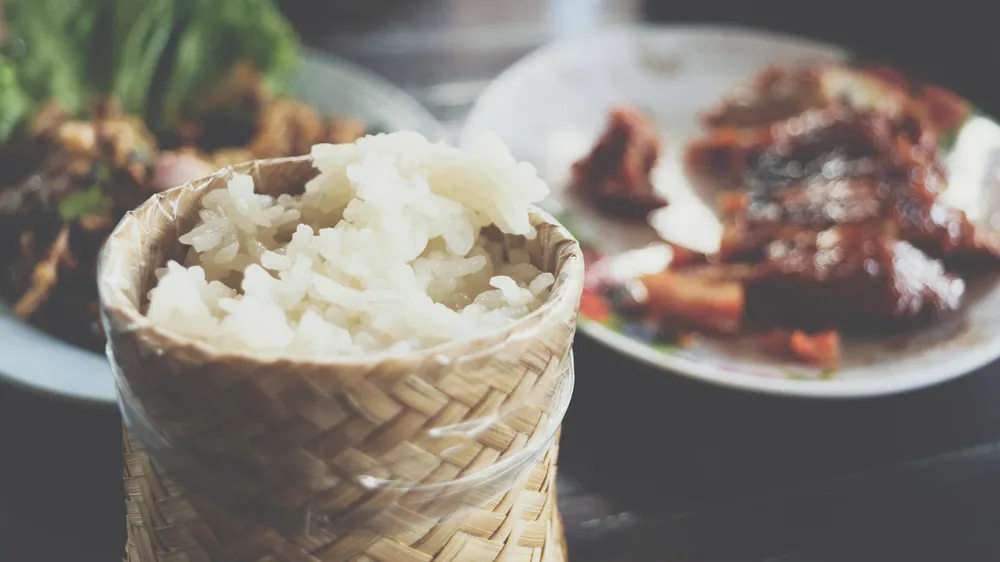Should I eat less rice or less meat for fear of gaining weight?

Should I eat less rice or less meat for fear of gaining weight?
Many of my friends often ask me which one should be eaten less compared to rice or pork when they are afraid of gaining weight during the dieting period.
Some people say that they should eat less meat because it is high in energy; others say that they should eat less rice because it is high in energy and easy to digest, which makes it very easy to gain weight.
So, if you want to lose weight, should you eat less meat or less rice? As a professional nutritionist, I will talk to you today.
Equal amounts of rice and meat calorie difference is not large
First of all, the biggest difference between rice and meat is their composition.
The main component of rice is carbohydrate, or starch; while the fat in meat is generally higher. Let’s use a table below to compare them specifically.
| Nutrient elements | Pork tenderloin (smoked) | Steamed rice |
|---|---|---|
| Calories (kcal) | 153 | 116 |
| Carbohydrates | 11.8 | 25.9 |
| Fat | 3.9 | 0.3 |
| Protein | 17.7 | 2.6 |
| insoluble dietary fiber | 0.0 | 0.3 |
Data source: China Food Composition Table Standard Edition, 6th Edition
From the above data, it can be seen that per 100 grams of weight of rice and cooked pork loin, pork loin has slightly more energy. But the difference between one less bite of meat and one less bite of rice is really not that big!
Don’t ignore the thermic effect of food
In fact, the human body needs to consume some of the energy while digesting food to gain energy, which is the “thermal effect of food”.
So, in addition to looking at the calories of the food itself, this part of the calories that we have to consume to eat it should also be counted.
Generally speaking, the food caloric effect of sugar is 6% of the total energy it provides, the food caloric effect of lipids is 4%, and the food caloric effect of protein is up to 30%.
So, when eating meat, it takes more of our energy to digest it. From this perspective, it seems like it would be a little better to eat less rice for the same amount.
Rice vs meat, no matter who eats less, has little effect on weight
Are the facts really as we guessed? It’s better to see it for yourself.
Recently, researchers at Stanford University actually did a study like this. The results found that whether you eat less meat or less rice, there is no big difference in their impact on weight.
The experiment was conducted in such a way that the researchers randomly assigned 609 subjects into two groups between 2013 and 2015 [1].
One group was put on a low-fat diet as required, which focused on reducing the amount of fatty foods and fats.
The other group was put on a low-carbohydrate diet, mainly by reducing the amount of carbohydrate-based foods such as rice and bread in the diet.
The BMI of these participants ranged from 28 to 40 kg/m2, with a mean of 33 kg/m2, and all were obese.
After 1 year of continuous observation, it was found that.
participants in the low-fat diet group lost an average of 5.3 kg; participants in the low-carbohydrate diet group lost an average of 6.0 kg.
There was some difference in the amount of weight loss between these two groups, but there was no significant difference.
In other words, if you want to lose weight, whether you eat less meat or less rice, the effect is actually similar and does not have a significant impact.
In fact, if you want to lose weight, you should not obsess about eating less rice or less meat, but about reducing your total energy intake and increasing your energy expenditure.
Reducing both rice and meat a little, and moving around more after eating, will help a lot with weight control.
Photo credit: Tuworm Creative